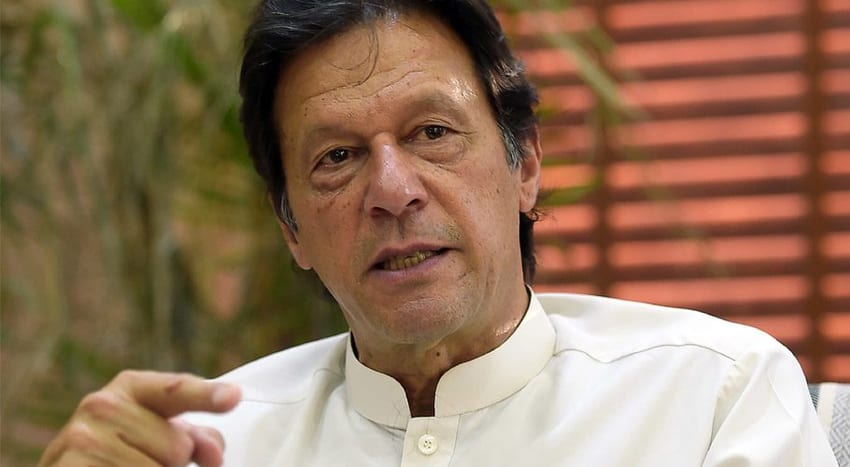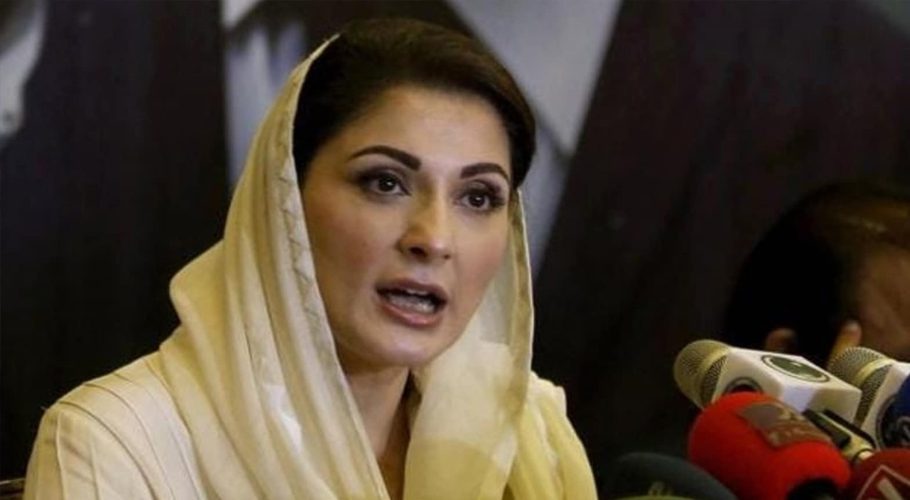![]() Follow Us on Google News
Follow Us on Google News
The laws passed by the government in the joint sitting of the Parliament have different aspects, the government has gained some, lost some and some are still in confinement, in the near future, it will be possible to get an accurate idea about them.
First of all, it must be acknowledged that the passage of these laws by Parliament is a strategic achievement of the government and the opposition has failed to stop the government despite a very small margin of just a few members of the Assembly. Until just a few days ago, it seemed that the success of the joint meeting was not a matter for the government alone.
Allegations of allied declarations, protests by angry members, the notorious incompetence and inexperience of the government team, all seemed to suggest that Imran Khan might have another setback.
This did not happen in the final analysis. Regardless of whether the laws were right or wrong, the government fully implemented what it set out to do. What the opposition thought could not be put into practice. In that sense, the government has succeeded, the opposition has failed.
One aspect that is very important in terms of parliamentary tradition and if the laws are challenged in the courts, this point will definitely be raised, is the approval in such an extraordinary and unnecessary haste.
Most of these laws are very important, some were discussed in the media, but it was only after the approval of many laws that it became clear that this bill was included. What was in it, neither the MPs nor the media reporters knew about it.
If the joint meeting lasted for a few days and these rules could be discussed openly, what was wrong with it? The decision was still to be made by a numerical majority, but it could be improved if the weak side of the law came to light.
If the joint meeting lasted for a few days and these rules could be discussed openly, what was wrong with it? The decision was still to be made by a numerical majority, but it could be improved if the weak side of the law came to light.
The hasty passage of dozens of laws has neither tarnished the government’s image nor strengthened its political, democratic, parliamentary traditions. In that sense, the government has a responsibility and it is a failure.
The biggest uproar was over the two election bills. Controversy over the EVM, or electronic voting machine, was high. The attitude of the opposition was harsh and inflexible in this regard.
The government was also determined not to back down from the bill. Eventually, the government passed the bill with a numerical majority, but it may become a bone of contention.
There are differing views on EVMs, strong objections, and strong advocates. I think political gaming has been played more on this bill. If the opposition had cooperated somewhat, the bill might have been drafted in a better way and the government would have worked a little more patiently and given detailed briefings to the Election Commission.
If it had been implemented at any stage of a by-election or local body election, there would have been less chance of opposition. At the moment, there are many doubts about this bill. Interestingly, the PTI brought the bill because, according to party sources, Imran Khan fears that he may have a hand in the next election and it is possible that those who have been his patrons will do it.
He believes that electronic machines will significantly reduce this risk. The top circles of PTI believe that the PPP in Sindh has forged millions or two to three million votes and these machines can prevent these fake votes.
On the other hand, the opposition fears that the PTI will take advantage of these machines and there is an opinion in their circles that the ruling forces can use these machines as a means to influence the next election.
Asif Zardari made a meaningful comment, which drew the attention of a few people. Zardari said that the seed was sown today but others will reap the fruits. Interestingly, even if the PTI wanted to, it could not directly benefit from these machines because they did not hold elections. Constitutionally, the election will be conducted by the caretaker government and it comes with the approval of the Leader of the Opposition. Despite the caretaker government being neutral, the entire election process will be overseen by the Election Commission.
All presiding officers are to be appointed by the Election Commission, ie if there is any possibility of misuse of this machine at any polling station, it can be done only by the officials under the Election Commission, not the polling agents of the ruling party. It has become clear to everyone that the Election Commission does not have a soft spot for the PTI and they have put up strong resistance to the government on many issues.
The bill is likely to be challenged in the courts. We cannot give a possible opinion about the decisions of the high courts, but since the Election Commission is against these machines and this bill has largely tied the hands of the Commission. Therefore, it is possible that this point will go against the government in the courts. If this legislation is reversed, that is the reason.
Overseas Pakistanis were opposed to the ‘right to vote bill’, but interestingly, all major political parties have been in favor. In the past, the PML-N itself has been saying this, the position of the PPP has been the same in the past. Today, they all strongly opposed the bill.
The manner in which the opposition resisted and spoke against the right of overseas Pakistanis to vote must have dealt a political blow to the opposition in the constituency of Overseas Pakistanis.
Bilawal Bhutto opposed PML-N more. This was an important part of the PTI’s manifesto, it fulfilled its promise and Imran Khan became a servant in the eyes of overseas Pakistanis, this is their main achievement.
In my personal opinion, Pakistanis abroad should have the right to vote, there is nothing wrong with that. Anyone with Pakistani citizenship can vote. I had many opportunities to contact Pakistanis abroad, I always found them sympathetic and very sincere about Pakistan. It is a good decision for them to have the right to vote in their home areas.
This happens in many countries of the world and there are natural, logical reasons for this. In this way a steak is created in the country for our foreign citizens, their involvement is increased and trust, love relationship with them is strengthened.
If people living in the United States, Europe, Arab countries vote in their hometowns, their connection with their homeland will increase, the connection will also increase and their new generations will also be connected with their homeland. Opposing the bill was pointless and unnecessary. It would have been better if it had been passed by consensus.
Criticism of Kulbhushan Jadhav’s decision to have the right to appeal is highly inappropriate, wrong, and based on dishonesty. To say that he gave NRO to Yadav is utter nonsense and a lie. The truth is that this was done according to the decision of the International Court of Justice and any government would have done so.
If Pakistan had not done so, contempt of court would have been committed and according to the Punjabi idiom, the ninth chapter would have been opened. Whether it was PML-N, PPP, or PTI, everyone had to pass this bill.
Secondly, the issue of Kulbhushan Yadav is not political or governmental, it is an issue of national security agencies, they have been dealing with this sensitive issue and this bill would not have been introduced without their approval. There may be other criticisms of the national security agencies, but it would be unfair to comment on patriotism or national security.
Giving the governor the SBP extraordinary powers seems to be part of the IMF’s demand, so it is wrong. That shouldn’t have happened, and not in such a hurry. Also because at present the Governor SBP is a person who is considered suspicious in some respects and public political circles consider him as an agent of IFM.
If conditions had been normal, perhaps there would have been a difference of opinion about the bill, as governments make so much fuss that regulatory bodies should be strong and independent. If the SBP is empowered and strong, it can avoid government influence.
The governor is constitutionally given the same privileges as a judge so that he can carry out his duties without fear and without heeding the pressure of governments. Strengthening the institution also falls into this category, but as mentioned above, the IMF nominee and his pressure behind the bill made it controversial.
Many bills have not been understood yet, whether the Academy Literature Bill has been amended, the rules of Privatization Commission have been changed, Port Qasim and Gwadar Port Amendment Bill, many more bills have also come.
One of them is the bill to make the rapist impotent. This has already been discussed. In our opinion, there is no harm, the punishment for rape can be made even more severe and horrible. However, if there are Shariah objections to it, then it should be challenged in the Federal Shariah Court.
The bill on domestic violence has also been passed in the same commotion. Who can support domestic violence? Experts have raised some technical objections to the bill, saying it is dictated by NGOs and will tear our social fabric apart.
A good law is a complete ban on private interest. There has been a long struggle for this. This will eliminate usurers and free God’s people. There is a political impression of this legislation, the government has won by a landslide but the manner in which the opposition has been defeated will provoke them to pursue more aggressive politics.
The opposition still has a majority in the Senate. It is possible that a no-confidence motion will be moved against the chairman or deputy chairman or a front will be opened in the National Assembly. This legislation may strengthen Maulana’s long march idea that if the change from the assemblies is not possible then public pressure will increase. These could be the aftershocks of this legislation.
There is a strong possibility that the next battle will be fought in the courts. There is also a conspiracy theory that the invisible forces, in order to appease both the government and the opposition, thought of letting the government win in the assemblies while the laws would be rejected in the courts for technical reasons, then the opposition would be happy. There is no comment on the conspiracy theory that we have seen countless conspiracy theories emerge in the last three years and then die.


























